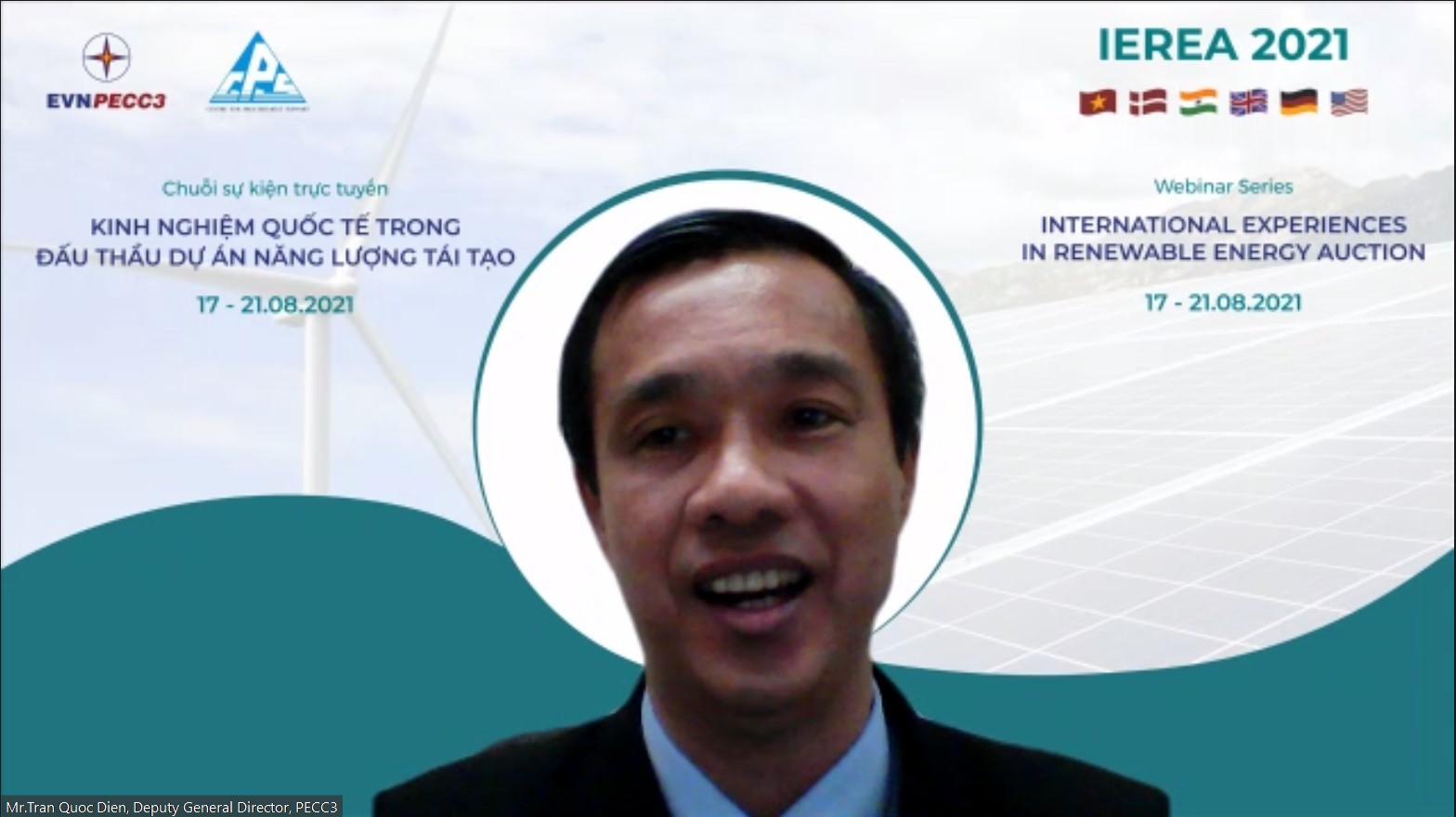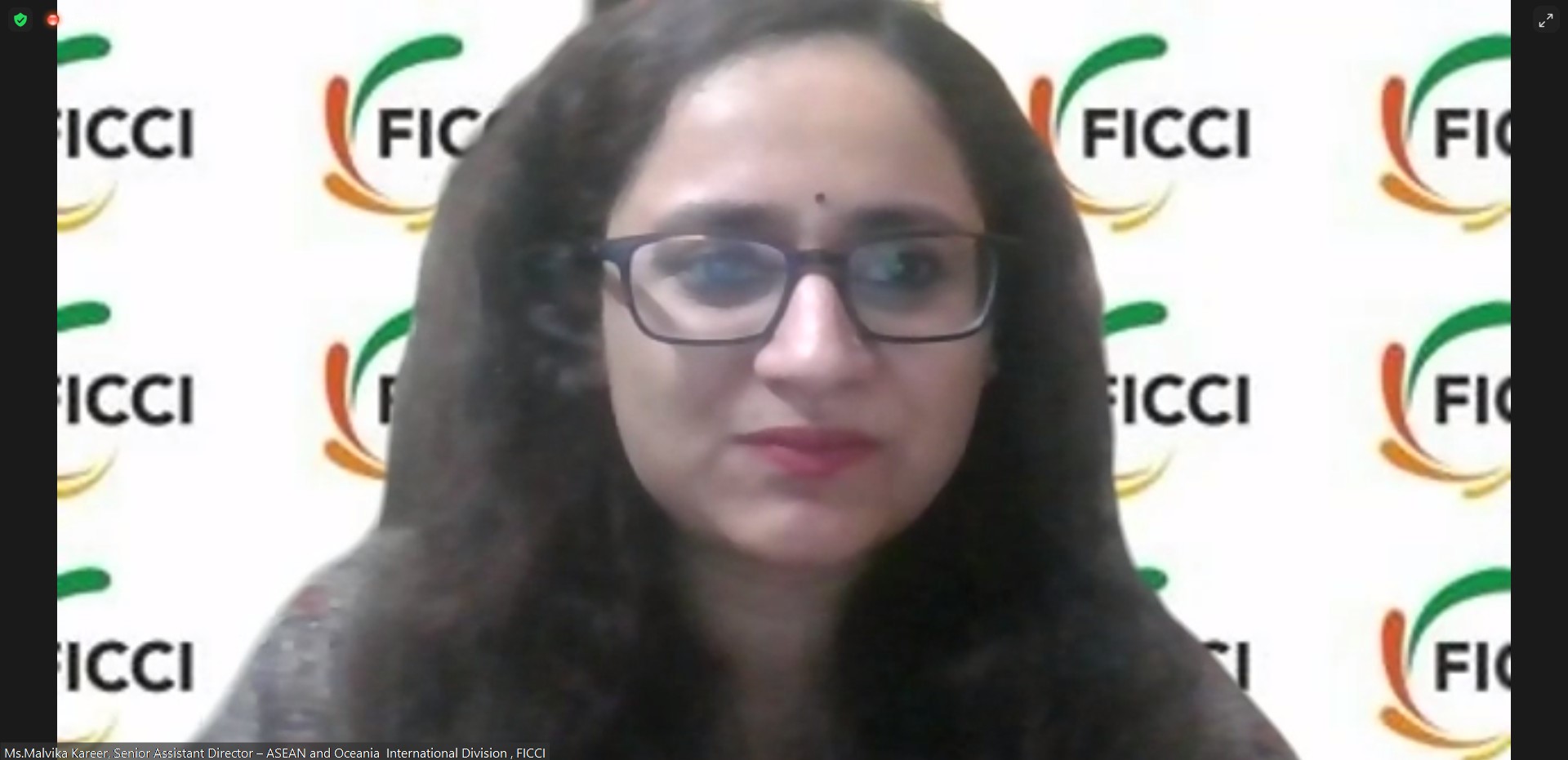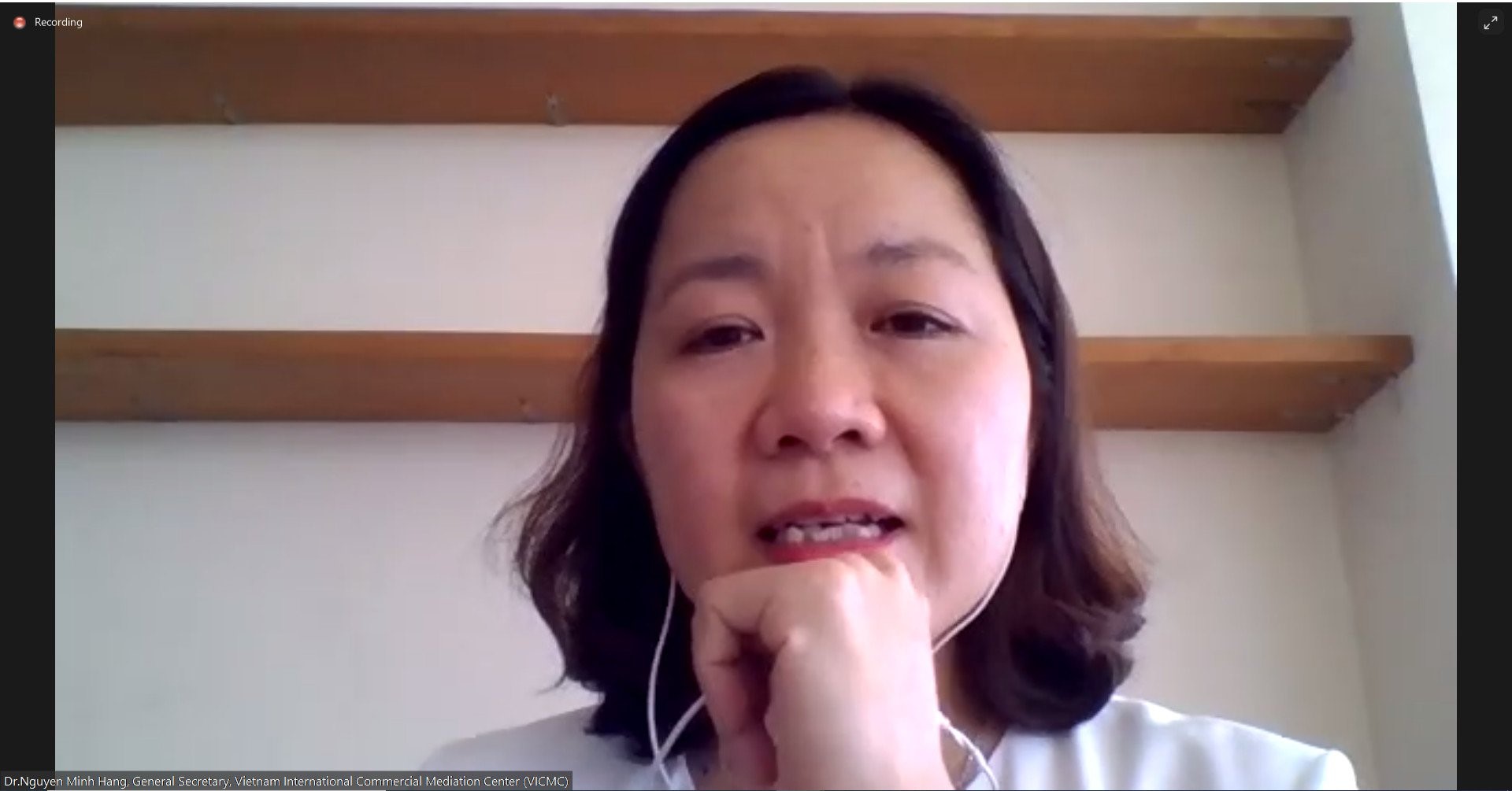The webinar series “International Experiences in Renewable Energy Auction” (IEREA2021), organized by PECC3 with the support of the Center for Procurement Support (CPS), the Public Procurement Agency of the Ministry of Planning and Investment, concluded successfully with its second session at 3 p.m. on August 18th, 2021. The session concentrated on India’s experiences with solar auction mechanisms.

Mr. Tran Quoc Dien – Deputy General Director of PECC3 – started his remark by expressing warm welcome to the distinguished guests from the Embassy of India and Vietnamese Ministries, Branches, as well as Indian experts and other business representatives. He also emphasized on the close partnership between two countries, and the importance of the renewable energy market in Vietnam.

Ms. Vu Quynh Le – Deputy Director General, Public Procurement Agency, Ministry of Planning and Investment of Vietnam – also appreciated the participation of Indian representatives in this session to share their experiences on the topic. She briefly summarized Resolution 55 on renewable energy development in Vietnam and expressed her desire to learn from experiences of the Indian Prime Minister in investor-state dispute resolution during the implementation process. Finally, she expressed her gratitude to the Indian Business Chamber in Vietnam (Incham) and Federation of Indian Chambers of Commerce & Industry (FICCI) for having supported PECC3 in launching the event.

On the Indian side, the first speaker to deliver the opening speech is Ms. Mini Kumam – First Secretary (Economics & Commercial), Embassy of India in Hanoi. She led us through Indian power industry restructuring and their renewable energy targets by 2030.

Ms. Malvika Kareer – Senior Assistant Director in International Affairs division of the Federation of Indian Chambers of Commerce & Industry (FICCI) – recognized this webinar series “International Experiences in Renewable Energy Auction ” as a creative initiative. Founded by Mahatma Gandhi as a commercial organization specializing in planning initiatives, FICCI wishes to cooperate with Vietnam in the upcoming activities and projects.

Mr. Devin Narang – Country Head of Sindicatum Renewable Energy (India) – presented that India is quickly restructuring the solar power planning mechanism. India utilised a reverse auction and welcomed all bidders. This approach brought more successful auctions than applying a high FiT scheme 10 years ago.
India is a federal country comprising many states with their own policies. Meanwhile, the projects are run by the federal government, which forms a barrier in land use and electrical transmission issues. At that time, the reverse auction was also hindered by many complicated regulations. If the planning is not correct, solar power investors will suffer heavy losses. In addition, India faces burdens such as interest rate, disparity between investors’ desires, as well as disparity between states’ wishes and government regulation.

In the past, many projects were canceled due to conflicts in tariff policy. This led to the cooperation between the Ministry of New & Renewable Energy and the Renewable Energy Developers Association to timely handle the issues and ensure maximum benefits for investors. In case of ongoing projects, the court may decide in favor of investors. As the solar sector is boosted by plenty of incentives in Vietnam, we recommend paralel task of land-use and transmission planning, to ensure generation to the grid. In terms of finance, regulations on exchange rates, interest rates and profits need to be taken into consideration in each stage.

From the legal perspective, Ms. Poonam Verma – Partner, J. Sagar Associates – pointed out some of the highlights in the Indian renewable energy auction. In the last 6 years, the solar capacity increased by 6 times, exceeding the 4-year plan for renewable energy development, which was attributed to great efforts of the Ministry of New & Renewable Energy. She also briefly shared the evolution milestones of India’s renewable energy. India has allocated an enormous budget ($351 million) for the development of solar power projects, including the power grid. Along with that, the Ministry of New & Renewable Energy also focuses on supporting investors and developing new initiatives. India is renowned for its solar parks, the largest of which has an installed capacity of 30 GW and is currently under construction in Gujarat. States would prepare land, infrastructure, and transmission lines in advance under this solar park model. Additionally, solar equipment manufacturers and importers are provided with incentives in India.
After sharing information about the government’s support for businesses, especially investors, Ms. Poonam emphasized that the government has put in place a mechanism to minimize state involvement in power distribution management after production, maximizing investor opportunities. With the support from the United Nations and World Bank, India exceeded its plan of 100GW wind power and 60GW solar power (targeted by 2022). Thanks to abundant capital and the increasing participation of investors, the price of solar power in India is getting lower.

In India, there are specialized bodies for dispute resolution, namely Central and State Electricity Regulatory Commissions. IThe government also issues Decrees and relevant laws for each auction stage. On top of that, India aims to create an open and supportive environment to ensure sound dispute resolution for relevant parties. Bilateral, multilateral treaties, international treaties, arbitration or international mediation are other alternatives that investors can opt for. She also shared India’s practical experiences on renewable energy dispute resolution (Rewatch the session for details).

Today’s Panel discussion was moderated by Mr. Vaibhav Saxena – Foreign Counsel, VILAF and Vice Chair, InCham.
What are the shortcomings of the current tariff mechanism for investors and how should it be adjusted? If the lowest bidder does not meet the technical qualification, can they proceed with the awarded price or have to renegotiate the contract for a lower price?
Ms. Poonam Verma – Partner, J. Sagar Associates: Investors can still try their best to negotiate with the government. The government has no right to push the price lower. Investors totally have the influence over this. They can even withdraw from the auction if the lower price is out of their capability. In case of going to court, the court tends to be on the investor’s side as they have followed the procedures. However the government, in a few circumstances, may win the case if they have evidence that supports the price reduction.
Is there any risk-proof legal framework for auctions?
Dr. Nguyen Minh Hang – General Secretary, Vietnam International Commercial Mediation Center (VICMC): Investors often plan ahead on how to resolve arising disputes. Today, the Indian experts shared a very effective dispute resolution mechanism for the renewable energy industry. In Vietnam, we have the Law on Bidding 2013 (Article 92), the Law on PPP 2020 (Articles 95, 96). Specifically, in the Decree of 2021 (Articles 73, 74, 75), we already have the Settlement Advisory Council at the national, ministerial and local levels. However, its decisions lack enforceability, so they are just for reference only. Therefore, we recommend that a more robust Council mechanism should be in place to ensure the enforceability of its decisions. Plus, council members must include experts from relevant industries. By doing so, we prove that this Council neither offers advice only nor stands on the side of the government. In addition, the current dispute resolution trend is gravitating towards mediation instead of courts. On that note, we can learn from India in developing dispute resolution guidelines for appropriate methods along every stage of the project.

Ms. Poonam Verma – Partner, J. Sagar Associates: In India, there is also a Committee – including 3 members, one of which is a government official – resolving contractual disputes in the energy industry. Although these decisions are not legally binding, they could be an option, along with other Decrees or Decisions, for relevant parties to proceed in avoidance of a lawsuit. Each state has its own open dispute resolution mechanism to ensure the highest level of enforceability of the contract
How has India developed a mechanism on investor-state dispute settlement?
Ms. Poonam Verma – Partner Lawyer, J. Sagar Associates: The parties, in essence, prefer to have a gentle dispute settlement process whether in court or not. In fact, it took 10 years and billions of dollars for some projects to get the final award from the court. Given the scale of these projects, it would be a lengthy and complicated process. Therefore, we usually recommend that disputes should be solved at the lower level by applying other non-court alternatives if the investor’s interest is still secured. In addition, a choice of law should be made through an agreement or negotiation between parties and depend on a specific case. I wonder if anyone wants to add up on that?
Ms. Vu Thi Chau Quynh – Deputy Director General of Legal Department, Ministry of Planning and Investment of Vietnam: ‘Dispute is inevitable in such a broad and multi-stakeholder energy sector. On the average, disputes occur in 20% of all projects, among which energy projects account for 17% according to ICC. Besides, due to the complicated auction process, there is a high probability that investor-state disputes are first to take place at stages where investment is yet to be made. In some projects, investors even invoke clauses in International Treaties to eliminate the participation of the governments in power transactions, or bring the dispute into international courts and demand damages on different grounds as the auction process is perceived as not transparent. However, these cases rarely happen. What matters is clear regulations on violations.

Ms. Lai Thi Van Anh – Deputy Director General of Department of International Law, Ministry of Justice of Vietnam: The possibility of an investor-state dispute occuring is very low because it is clearly prescribed in the laws and decrees. Even though the energy sector has the highest dispute rate, most of them tend to be in the implementation stage, while bidding process disputes are inconsiderable. Regarding the price adjustment, these requests are mostly made by investors rather than governments. In addition, thorough preparation of the proposal and bidding process is required before both sides sign the contract.
Assoc. Dr. Nguyen Minh Hang – General Secretary, Vietnam International Commercial Mediation Center (VICMC): I totally agree with Ms. Quynh and Ms. Van Anh that there is a small chance that an investor-state dispute is going to happen. However, we need a domestic mechanism to protect investors’ interests. Currently, the operation of the Settlement Advisory Council is not effective enough to resolve disputes over PPA despite the participation of the Electricity Regulatory Agency of Vietnam (ERAV). Therefore, in order to gain the trust of investors, the government needs to think of an objective mechanism with legal binding powers, under which disputes would be resolved faster by a new established Board or through more effective policies, along with detailed guidelines on alternative dispute resolution such as commercial mediation, arbitration or other forms.
What are the suggestions for Vietnam in designing the auction scheme from Indian experience?
Ms. Poonam Verma – Partner, J. Sagar Associates: One of the important factors is the policy makers need to anticipate different scenarios and specify special provisions for force majeure, changes, provisions for force majeure, termination of contract and dispute resolution mechanisms, etc. These elements must be taken into consideration before designing an auction model. After the bid is awarded, the focus should be on the contract management, which requires risk control boards to strictly monitor the implementation so as to limit arising issues.
Ms. Lai Thi Van Anh – Deputy Director General of Department of International Law, Ministry of Justice of Vietnam: In addition to a well-developed auction scheme, the emphasis should be placed on investors’ technical and financial capacity. In some cases, the Government has to terminate the contract as the winner is unqualified, even though agreement on price is reached. Therefore, the top priority is to carefully prepare qualifications in the invitation stage. In addition, bidding documents should clearly inform investors on dispute resolution and price to avoid future problems.

Ms. Vu Thi Chau Quynh – Deputy Director General of Legal Department, Ministry of Planning and Investment of Vietnam: To resolve the RE dispute, the auction policy should be consistent with the applicable laws. The purpose of auctioning is not to find a good price agreement for the EVN or the Government, but to choose a developer meeting technical and financial qualifications for a particular project. I agree with Ms. Van Anh about the preparation of bidding documents. If we want to come up with new auction models, more capacity building programs need to be carried out. In addition, tariff support schemes must ensure both investment attraction and the country’s own resources. For example, the Spanish FiT regime was first applied in unlimited periods, causing financial restraints as equipment was fully depreciated. Hence, the decision on FiT reduction took its toll on investors’s provision. As a result, transparent support schemes, tax policy and planning are the prerequisite for investors’ better financial preparation and dispute avoidance. Plus, dispute resolution alternatives such mediation or arbitration should be encouraged.
What are the lessons learnt and what can Vietnam take from the success story of India for future development?
Ms. Poonam Verma – Partner, J. Sagar Associates: The key lesson we’ve learned over the years is how to speed up the dispute resolution process. In large-scale projects involving various stakeholders from different countries, the longer dispute gets resolved, the more damages relevant parties have to suffer. Therefore, we always prefer to resolve dispute, mainly derived from capital, before resorting to court. If the project deployment, handover and dispute resolution, in which legitimate interests of parties are protected, is carried out in timely manner, the legal framework might be completed in the next 3 to 4 years. In addition, payment methods should be specified in the, for example, 25-year contract as both parties agree on long-term vision. Both Indian government and investors are now benefitting from a robust legal framework.
According to Ms. Pooman, Vietnam seems to be in a better position than India. Is there anything that our Vietnamese panelists want to add up?
Ms. Lai Thi Van Anh – Deputy Director General of Department of International Law, Ministry of Justice of Vietnam: It would be better for the government to have consistent and appropriate investment policies to avoid any unnecessary conflict. I have seen how these types of change result in disputes or make the situation worse for stakeholders.
How can we improve the role of the Settlement Advisory Council and the enforceability of its recommendations?
Assoc. Dr. Nguyen Minh Hang – General Secretary, Vietnam International Commercial Mediation Center: The regulation on the establishment of Settlement Advisory Council at different levels, in both the Law on Bidding and the PPP Law, can come in handy in this current context. However, my recommendations are as follows: (1) the need for the involvement of legal, technical, and financial experts to ensure investors’ interests are best protected; (2) a more robust mechanism in which Council’s recommendations are legally binding. These factors will lay out the foundation for our future support policies based on the PPP Law when the auction scheme is applied.
Ms. Lai Thi Van Anh – Deputy Director General, Department of International Law, Ministry of Justice: ‘We also have article 97 in the PPP Law that can be applied to all disputes between businesses, investors and the government. This provision is not much different from the dispute resolution clause in the Law on Investment, from which we have another approach to settle disputes in PPP projects.

After the panel discussion, on behalf of organizers, Ms. Nguyen Thi Dieu Phuong – Director, Center for Procurement Support delivered a closing remark to conclude today’s session. It is believed that dispute resolution in public investment and PPP projects is the main interest of Vietnam’s National Assembly and the Government. She hoped that Indian experts and representatives would continue to offer their expertise to assist Vietnam agencies in policy planning and development for all projects, particularly in the RE sector.

Mr. Nguyen Tuan Phat – Legal Counsel, PECC3 introduces speakers and presentations in the session
To get an overview of other sessions (Denmark, UK, Germany, USA), please find details at the website of Power Engineering Consulting JS. Company 3 (PECC3). We are proud bringing our integrity and trust to our distinguished partners through this webinar series.
